Report: 2020 leaves its mark on the PR industry
For USC’s Annenberg School 2021 Relevance Report, respondents share new priorities and attitudes when looking to a post-COVID future.

What will be the lasting effects of what has been a very challenging year for so many?
The way we work has changed. The way we gather has changed. Major life milestones like graduations and weddings were postponed or marked privately. The way we shop has changed as more and more transactions move online.
We may go back to the office in 2021—though some will not—and we hopefully soon will be able to again gather for important life events and cultural celebrations. But COVID-19 has changed what we say matters most to us, as evidenced by the responses in the 2021 Relevance Report from USC’s Annenberg School of Communication, in partnership with the Institute for Public Relations and Golin.
When it comes to topics and news that audiences want to learn more about in 2021, a COVID-19 vaccine tops the list:
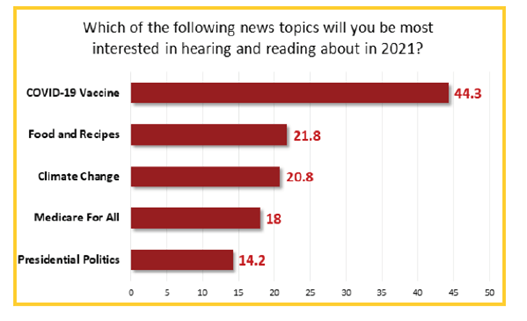
When asked about the changes that they hope to make permanent, fitness and health were of the most importance looking ahead:
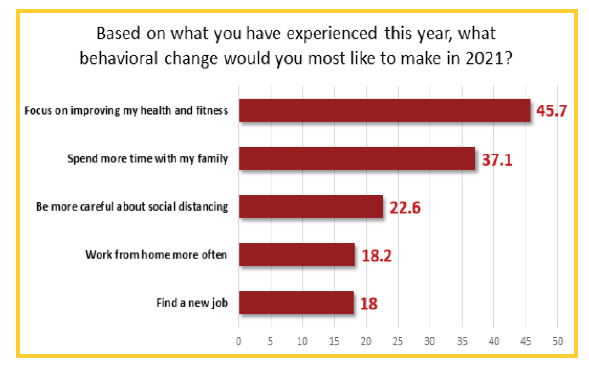
Some old activities are likely to make a robust comeback once a vaccine is available. Consumers report a strong desire to return to restaurants and theaters:
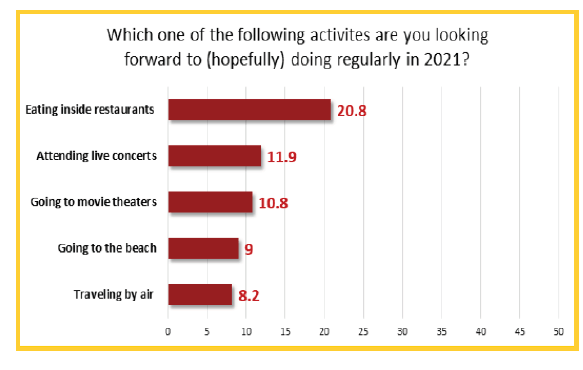
2020 gave us new household names, such as Zoom, which became ubiquitous during COVID-19 lockdown restrictions. According to the data, Zoom will continue to be the most popular meeting platform in 2021:
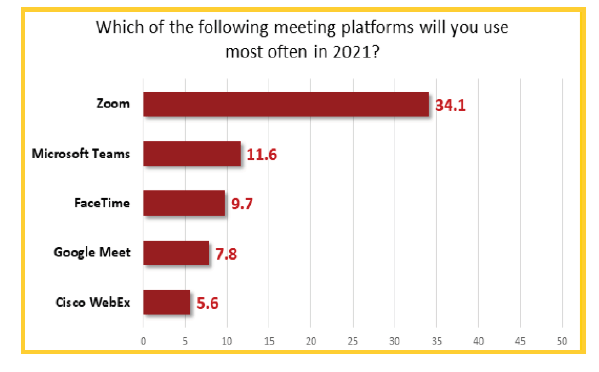
The other brand winners are somewhat more expected. Amazon continues to dominate the retail scene as many purchases have moved online:
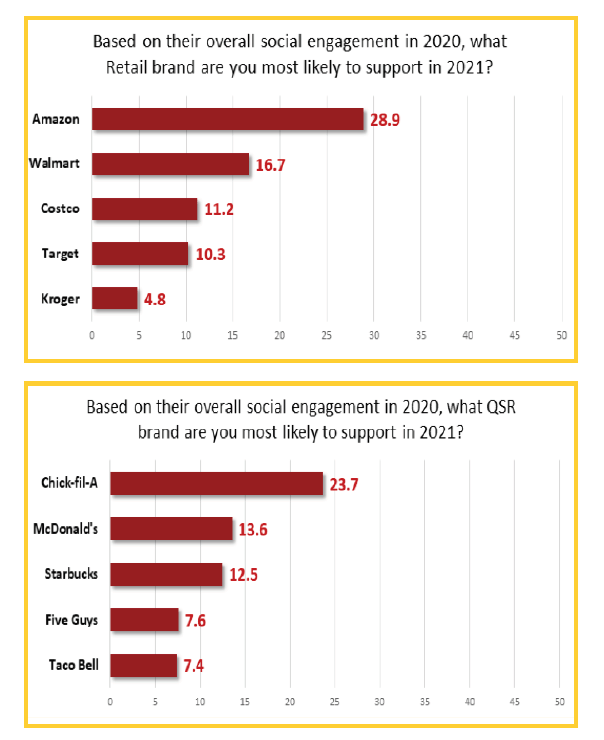
There’s also a greater call to purpose-driven communications and taking a stand on cultural issues, a trend that has stood out in recent years and been reinforced by the crises of 2020. Brands that are hesitant to speak out might be basing their decisions on outdated perceptions, writes Fred Cook, CEO for Golin and director of the USC Annenberg Center for Public Relations.
“Public relations executives, who serve the front lines of issues management for their clients and companies, generally perceive activists as people who walkout, strike and protest,” he writes in the report. “They view those in-your-face tactics as a means to attract negative attention, rather than to create meaningful change. And negative attention is the last thing they want for their brand. “
Perhaps the most striking thing to take from 2020 is how divided the United States is as a nation. Amid a highly charged presidential election, the response to a global pandemic was politicized. Americans have been grappling with the proliferation of “fake news” for several years, but the ill effects on trust, public institutions and common decency have never been more apparent than during the COVID-19 crisis.
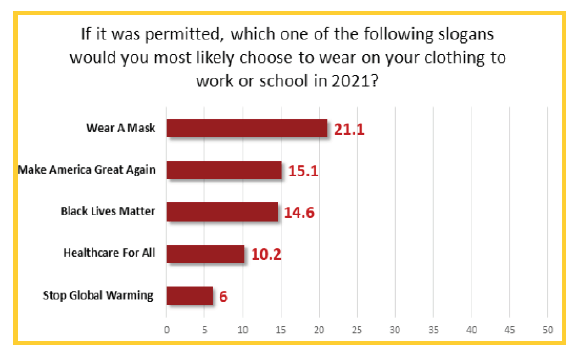
Brands eager to find success in 2021 must understand their audience to find ways to offer messages (and programs behind those messages) to engage their loyal following. In a divided marketplace, you can’t please everyone, and it would be folly to try. Instead, serve the customers you know you can reach, and try to build a community that supports the future success of everyone.







